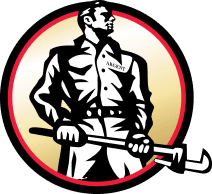NJ Boiler Installation & Repair
Understanding Traditional Boilers
When it comes to a home’s boiler system, there are three options to choose from. The three available boiler types are the traditional (or conventional) boiler, the condensing boiler and the combination boiler. In older buildings where boilers have not been updated or renovated, the traditional boiler is most likely to be used. In newer homes, the boiler choice can vary depending on a number of factors. Before deciding on the best boiler system for a home, homeowners need to have an understanding of how the three options work.
Understanding How A Traditional Boiler Works
A traditional or conventional home boiler is comprised of two separate water tanks in the loft area of the boiler, a large cold-water storage tank and a small “feed and expansion tank.” In a traditional boiler, the cold-water storage tank operates by pulling water from the cold water mains. This water from the storage tank is fed down to the cylinder – usually in an area referred to as the airing cupboard. The central heating boiler converts cold water to hot water by heating the cylinder. This is advantageous because it allows for the cylinder to release gallons of water to the various taps in the home. The “feed and expansion tank” is smaller in size and is responsible for maintaining the correct level of water for the heating system. This allows for any needed expansions of the water in the radiators and piping if it gets too hot.
The Benefits Of A Traditional or Conventional Boiler
When it comes to choosing the right boiler for a home, understanding the advantages and disadvantages of each option is crucial. The traditional boiler is a popular choice due to a variety of advantages over the other two options. Below are the advantages of a traditional or conventional boiler.
- Allows for multiple showers, taps and baths to be drawn at the same time in the same house without a lack of hot water.
- Traditional boilers have exceptional recovery times. If the hot water fails, recovery of heated water can generally be achieved within twenty-five to thirty minutes.
- Installation of a traditional boiler is simpler than the installation of a condensing or combination boiler.
- Traditional boilers have the capability to be used with renewable systems.
- These boilers do not require a pressurized system and, therefore, are safer and less costly than their counterparts.
- Traditional boilers are efficient and reliable at any temperature.
- Traditional boilers are compatible with solar water heating systems – which results in a smaller carbon footprint and reductions in energy costs.
What To Consider When Choosing Traditional Boiler Systems
There are a few things to consider when choosing a traditional or conventional boiler system for a home. These include:
- Traditional boilers are larger than their counterparts and take up more space in a home. Therefore, they are problematic in smaller homes.
- Traditional boilers can be inefficient and costly to run – especially when compared to their newer counterparts.
- If the water tanks of a traditional boiler are not high enough, the home can experience low water pressure.
Is A Traditional Or Conventional Boiler Right For Your Home?
As previously mentioned, older buildings typically have a conventional boiler. Homeowners looking to install or replace a home’s boiler system should consider the various factors that go into determining which system will meet the building’s needs. A trained heating and air conditioning technician can help owners determine whether this option suits their home’s needs. A traditional or conventional boiler is likely the ideal choice for homes or buildings with the following characteristics.
- The home or building already has a traditional heating and hot water system installed, and this system is already linked to a separate hot water cylinder.
- There is space in the loft area to accommodate the needed cold-water storage tanks, as well as a tank that serves to maintain the water level in the central heating system.
- The property in question has an older radiator system and the homeowner is trying to replace this system.
- The home or building’s inhabitants use a lot of hot water at the same time on a regular basis.
- The home or building has two or more bathrooms that the boiler system will service.
Purchasing And Installing A Traditional Boiler
Homeowners looking to purchase and install a traditional boiler, or to replace their current boiler system, can call the heating and air conditioning specialists at Argent Plumbing. Consultants and technicians can be reached at 908-286-1920. Call today to speak with an experienced home heating and air conditioning specialist.


